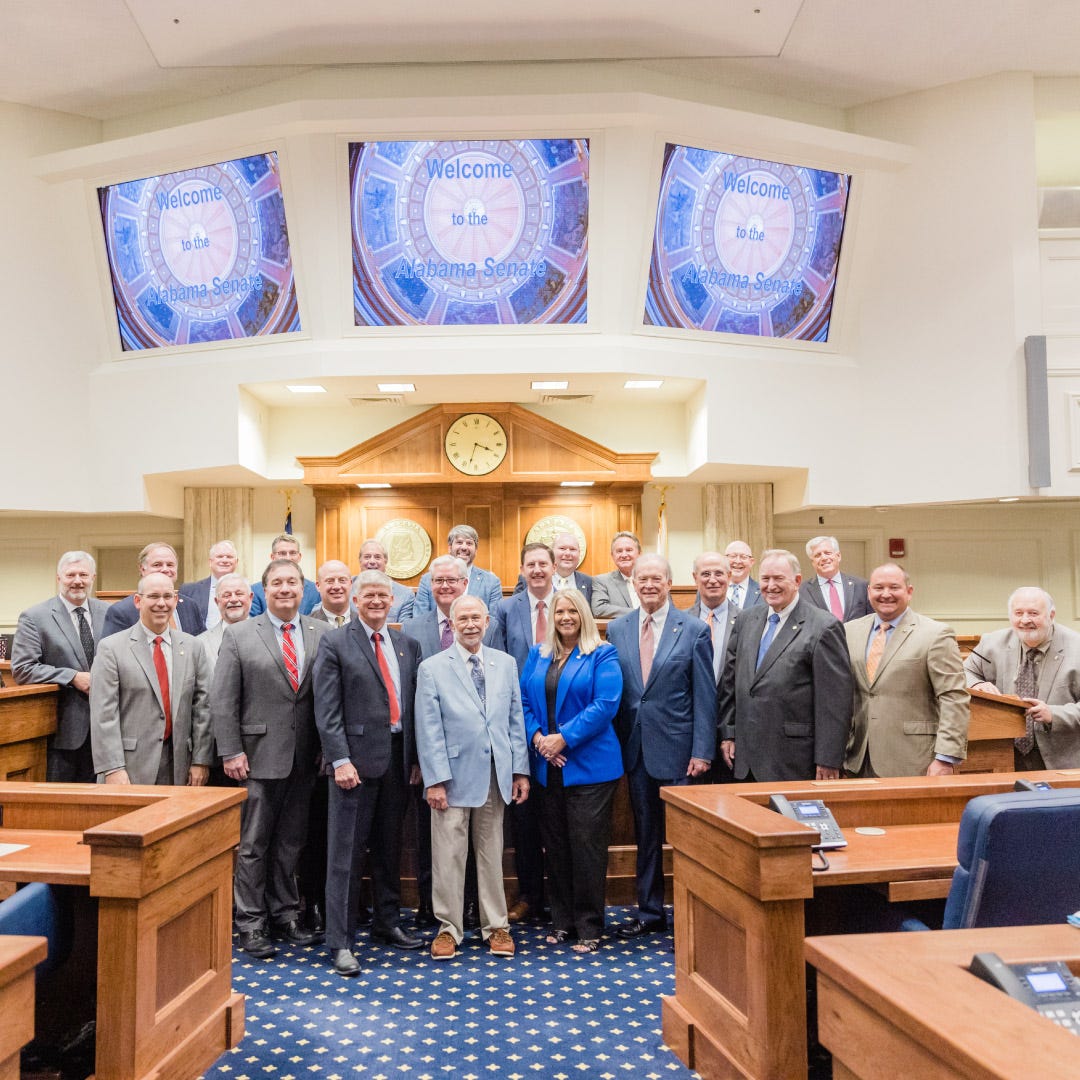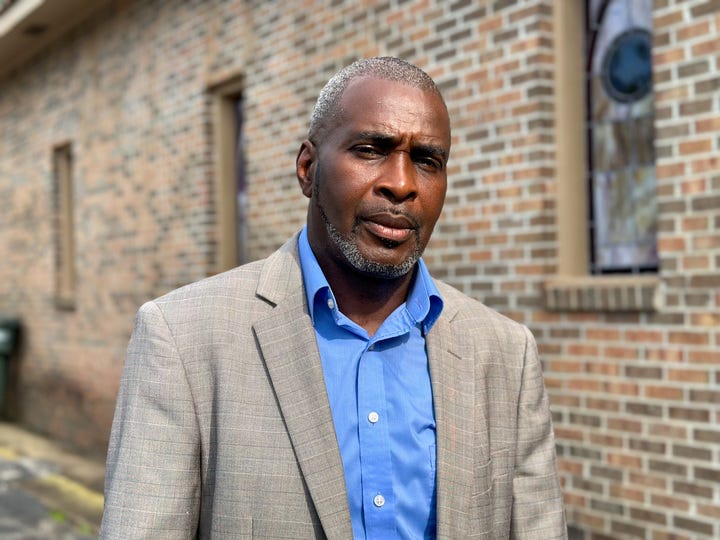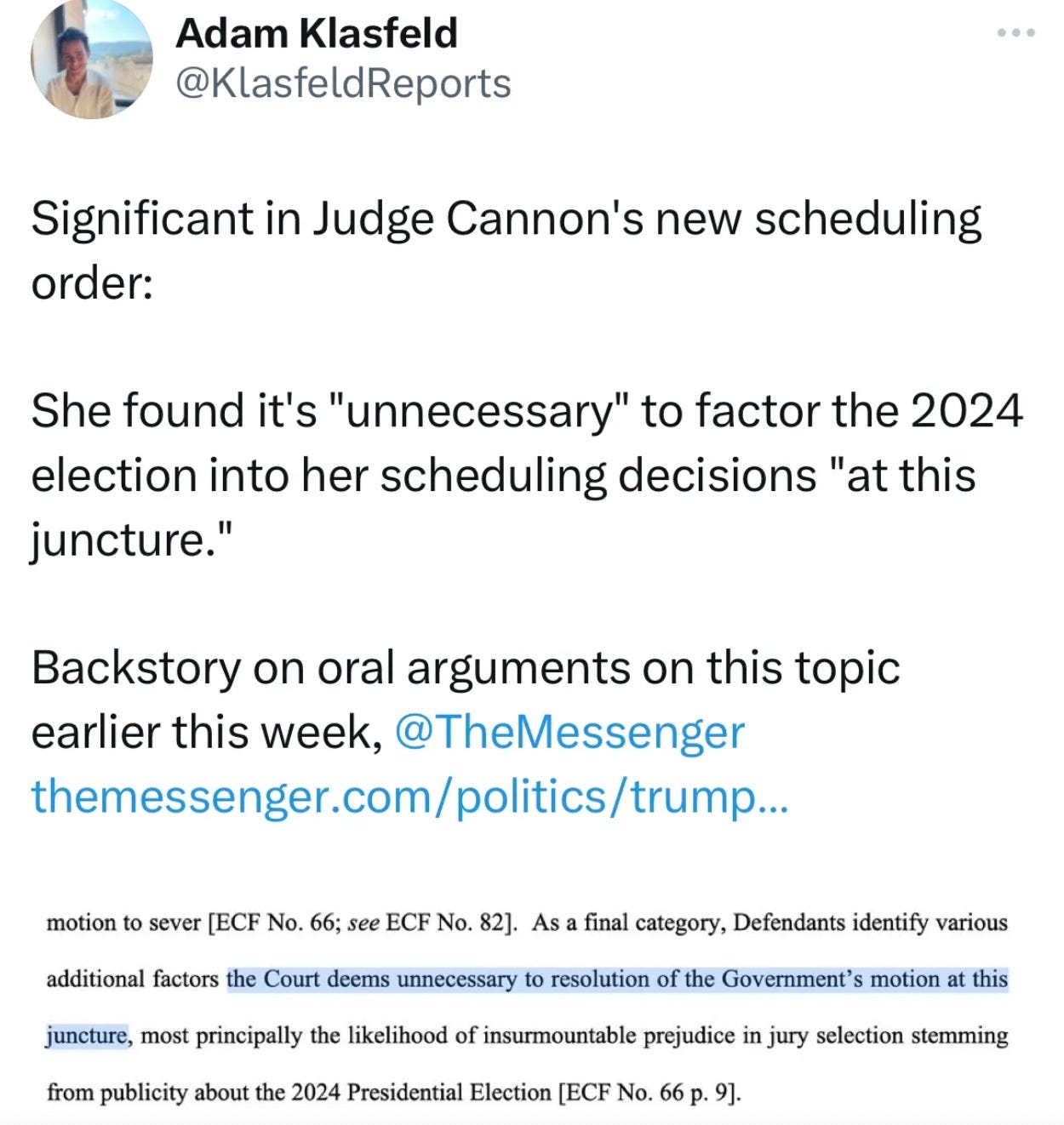Our legal system is supposed to work for everyone and protect the rights of people who cannot protect themselves. Our laws are not intended to be enforced just for an elite group of people and only for their benefit. Whether or not the system always hits the mark, it’s essential that it aims to. The rule of law is compromised when a system only works for people who are already in power.
People’s perception that the system is fair is critically important. We’ve seen that in play with the Supreme Court. Once a Justice’s acceptance of favors from a wealthy individual with a stake in issues before the Court is exposed, everything, including the Court’s rulings, is open to question. We can’t afford to have problems like that because we need the finality that comes with a decision from the Supreme Court for individuals and for the country to move forward. In the absence of public confidence in the Court and the courts more widely, our system cannot continue to resolve the difficult issues we need it to. That’s why courts are supposed to make sure their integrity is above reproach and take steps to guarantee both the impartiality of their rulings and the appearance of impartiality. Otherwise, people question whether the system really works, and that’s a slippery slope no democracy wants to be on.
That’s where courts have to be especially on guard. As we head into the coming week, there are a number of legal developments—some you are likely very well aware of, but others perhaps less so—that have the potential, if they’re not handled properly, to raise concerns. At its starkest level, following the recent Supreme Court term, the week ahead may see people question whether the rule of law protects some, but not others. For instance, people whose religious beliefs don’t extend equality to LGBTQ people don't have to make wedding websites for gay couples, but Black voters in Alabama may not be protected, even when the Supreme Court says they should be. The courts have to stay on guard against issues of inequity.
That’s where we start this week. Republicans in the Alabama Legislature refused to comply with the Supreme Court’s decision that the redistricting maps drawn by Alabama’s legislature violated Section 2 of the Voting Rights Act and should be redrawn to create two districts where Black voters would have the opportunity to elect candidates of their choice. Instead, they approved, yet again, a map with only one district where Black voters are in the majority. The newest map also has the fringe benefit of protecting the state’s six white Republican incumbent Congressman. None of them will have to face another of their number in a primary, as two of them would have had to do if a map that comported with the Supreme Court’s decision had been selected.
The Court was explicit. It held that “any remedial plan will need to include two districts in which Black voters either comprise a voting-age majority or something quite close to it.” That’s because of the disconnect between the results of the 2020 census and Alabama’s near-tradition of diluting Black citizens’ voting power by gerrymandering as many of them as possible into one disingenuously drawn district, while spreading the remainder throughout Alabama’s other six Congressional districts in numbers too small to have a meaningful opportunity to influence the outcome of elections. The Supreme Court ruled that Alabama’s Black population was large enough and geographically compact enough to create a second majority Black district. But the GOP-led legislature ignored the Supreme Court’s dictates and kept one majority Black district, while adding in a second one that didn’t even reach 40%. 40% doesn’t seem “quite close” to a majority.
Former Attorney General Eric Holder released a statement that said, “This map, and the Republican politicians who supported it, would make George Wallace proud.” He pointed out the Legislature ignored its job after the Court’s ruling—ensuring Black Alabamians’ voting rights were protected—and focused on how to preserve the old system.
Now, the matter will head back to the courts, where a three-judge panel decides whether to approve the legislature’s map. Their likely move at this juncture is to reject the legislature’s map and appoint a special master to draw a new one. But how will they address the legislature, which is, of course, an independent branch of a state government? How the court handles the matter and how swiftly justice is dispensed, including any appeals, is critical with the next round of federal elections just around the corner. While they might seem far off, the Alabama primary is in March of 2024 and candidates are required to declare by November 10, 2023. That means the districts must be shaped by then so potential candidates can decide if and where to run. Unlike 2022, when maps that have now been disallowed remained in place, the 3-judge panel, and perhaps ultimately the Supreme Court if there is another appeal, will have the job of swiftly restoring rights.
The courts should condemn, in no uncertain terms, the legislature’s flagrant disobedience of the Supreme Court’s legal ruling and craft a path forward that prevents the hyper-partisan legislature from continuing to bypass Black voters’ rights. Alabama’s Republican Attorney General, Steve Marshall, said in June when the case was decided that he expected to continue his defense of the maps the Supreme Court rejected. “Although the majority’s decision is disappointing, this case is not over,” Marshall said in a statement, implying he wanted to have a full trial before he gave up. That’s not how the Supreme Court saw it, and the question now is whether the courts will stand for the principle that what the Supreme Court says is the law of the land, or whether Alabama will get away with the shell game it’s trying to play with Black voters’ rights.
How the courts handle this matter will either reinforce or erode confidence in them and in our system of government. A lot will rest on the decisions that are made. They must be made soon.
There are also other matters, with less of a public profile, that contribute to the public’s confidence in the courts. One of those matters is also taking place in Alabama. Patrick Braxton filed a federal civil rights lawsuit alleging that after being elected as the first Black mayor of Newbern, Alabama, the existing mayor, town leaders and others took steps to prevent him from taking office, reappointing the previous mayor in a secret meeting and using their power to prevent Braxton from performing his duties, even using the postmaster to prevent him from obtaining city mail. Braxton says that the town hasn’t held an election for decades, and that the job of mayor passed during this time from one official to a hand-picked successor. The new mayor would then appoint council members of his choice, without holding elections. Newbern, which is about 85% Black, had never had a Black mayor before Braxton and only one Black town council member.
How quickly will the courts move to address this situation? The defendants have already filed a response, in which they concede many of Braxton’s key allegations. They’ve asked the court to dismiss his lawsuit. This case is shocking, more 1950s than 2020s, and we would expect, in an effectively functioning system, to see the court promptly address the situation to restore a lawfully elected official. This one is worth watching. In this country, we are entitled to elect our leaders, and the courts are charged with making sure election results are carried out. That’s their job here in a mostly unlikely place.
Protection election results, of course, take us to Donald Trump.
Late last week, in the documents prosecution, federal Judge Aileen Cannon ruled that the government would not get its request for a December 2023 trial date, but that Trump, at least for now, would not get to wait until after the presidential election to face a jury. Judge Cannon set the trial date for May 20, 2024.
I’m not bullish on this trial date setting, but it’s not unexpected. Here’s the problem: it’s not so ridiculously far in the future that the government can successfully appeal.
But, it’s far enough out that the prospect of additional delays could easily move the trial date past the election and open up the prospect that Trump would face the voters without having to face the charges against him first. As the trial gets closer, there will be abundant opportunities for Trump’s team to seek delays. They may appeal certain rulings, and they may drag their feet (as they did on filing security clearance papers) on items on the Judge’s pre-trial schedule. There can be illness, or witnesses can become unavailable on certain dates due to unforeseen reasons. And that’s before we even get to the prospect of Trump claiming he must be permitted to attend campaign events. Rulings on whether delay is merited will be in Judge Cannon’s discretion. They are not the sorts of rulings that are readily appealable by prosecutors if the trial date is forced back.
If Judge Cannon were to decide that a delay that necessitated a delay in the trial date was necessary, it’s unlikely that would mean the trial would get pushed back a few days, or a week. That’s because federal judges don’t usually have big open blocks of time on their calendar. Setting a new date would mean looking for open space on the Judge’s calendar. Trump’s lawyers said the trial would take months, but even if we go with the government’s more reasonable suggestion of weeks, a delay could easily move the trial back until after the election.
While Judge Cannon may have deemed it unnecessary to consider the 2024 election at “this juncture,” that doesn’t mean she won’t revisit her decision down the road and permit Trump to campaign instead of appear in court. But even mundane delays could derail the speedy trial the Special Counsel has worked so had to obtain here.
Meanwhile, we’ll all be waiting to see if this is the week Jack Smith indicts Trump and/or other key ringleaders in connection with the Big Lie, January 6, and efforts to interfere with the transfer of power. Last week, Trump revealed he’d received a target letter from Smith. The letter, according to unnamed sources, mentions three federal statutes Trump may be charged under:
• Deprivation of rights under color of law
• Conspiracy to defraud the U.S.
• Tampering with a witness
No additional details have been made public. Most importantly, we don’t know the specific statutes the government is considering or what their theory of how Trump violated those laws consists of. But these statutes would give prosecutors the latitude to charge the full range of one or more conspiracies to interfere with the certification of the electoral college vote, to use fake slates of electors and pressure campaigns on state (Georgia!) and federal officials (think Mike Pence) to alter the outcome of the election, and to interfere with citizens’ rights to vote and have their votes counted.
The question hanging over Trump’s criminal proceedings is whether the courts will be able to handle the challenges implicit in trying a former president. Can they conduct court proceedings and trials so Trump can be treated, at least as much as possible for a defendant who comes with his own Secret Service detail, like anyone else indicted on criminal charges? The outcome of Trump’s criminal trials is obviously important to everyone involved, including to the public. But as with other matters working their way through our legal system, the public will judge the integrity of the courts based on the whether they perceive the process to be fair. The courts know they face this challenge and like any other institution, their job is to rise to it, in a time when some institutions have fallen short and seem to have succumbed to Trump’s devices and to prioritizing some people’s rights at the expense of others.
Federal judges have life tenure, which relieves them of the pressure of following public opinion. But it does not remove their obligation to serve the public. It does not mean they need not act with integrity. In fact, and perhaps more so than at any other moment, the courts have the obligation to convince the public that they will live up to their responsibilities. Following the 2020 election, when one court after another rejected Trump’s fraud claims, the courts were the institutions that held. But the challenge of instilling confidence is one they face, and must be up to, every day and in every case. Great power brings with it great responsibilities. We’ll watch this week to see what the courts do.
We’re in this together,
Joyce








It's odd to see a body of people as in the photo that are all so white. I see 1 woman, but she's not but one voice. Doesn't bode well for minority voices.
It seems the new norm is to just do what one wants. Create your own reality, snub the law and the judges, make-up your own rules. Trump set that standard, and it feels like we can never go back. Loopholes have become the rule of law. Honor system and protocol are so passe'.
To use a knitting analogy, it feels like everything is unraveling.
Judge Cannon knew what she was doing when she postponed the date for nearly a year on an open and shut case. I guess we can only wait and see for Jack smith’s response. The situation in Alabama should be considered insurrection.
Thanks Joyce, not an easy but necessarily necessary read!